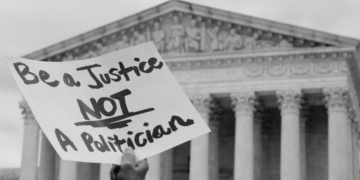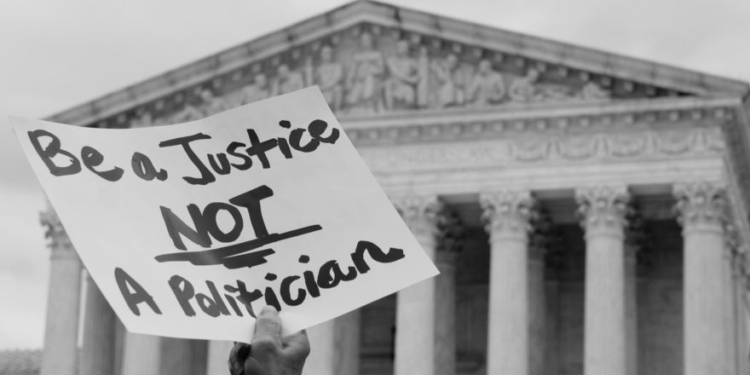Supreme Court rulings on hot button issues closely aligned with public opinion this term, according to data released by The New York Times.
Despite vocal opposition by some Democrats, public opinion supported the position taken by the Supreme Court in ten significant cases, including decisions upholding religious opt-outs, backing age verification laws for porn websites and supporting state laws banning transgender procedures for minors, SCOTUSPoll project data collected by Harvard, Stanford and University of Texas researchers shows.
Just 20% of Americans believe the Supreme Court is politically neutral, according to a June Reuters/Ipsos poll. Only 26% of Democrats view the court favorably, while 67% Republicans do, according to the poll.
The SCOTUSPoll project, which surveyed 2,201 adults between April 10 and 16, found 77% agree schools should permit religious opt-outs for instruction on gender and sexuality, 80% agree states should be able to require websites to verify user ages and 64% agree states should be able to ban transgender procedures for minors.
The three liberal justices, who dissented in each of the cases, decried the majority’s rulings as harmful.
The decision in Mahmoud v. Taylor to uphold parental opt-outs would create “chaos for this Nation’s public schools,” Justice Sonia Sotomayor wrote in a dissent joined by Justices Ketanji Brown Jackson and Elena Kagan.
She claimed in her United States v. Skrmetti dissent that the majority authorized “untold harm to transgender children and the parents and families who love them.”
Democrat Sens. Dick Durbin of Illinois and Jeff Merkley of Oregon opposed the Supreme Court’s Skrmetti decision, calling it “a full-fledged license for states to discriminate against vulnerable kids” and a “playbook for extremist politicians to continue their crusade against trans people.” Durbin likewise called the Mahmoud ruling “a loss for public education, freedom of speech, and LGBTQ+ rights.”
“LGBTQ+ stories matter,” he said. “Kids deserve to see themselves in the books they read. Tragically, the same zealots who try to ban books from libraries are now trying to limit what kids can learn, read, and hear from teachers in their classrooms.”
Democrats also came out against the Supreme Court’s decision reining in district court judges’ use of nationwide injunctions, though many have opposed their use in the past. Jackson warned the decision would enable “our collective demise.”
The Supreme Court did not rule on the merits of birthright citizenship, which 64% of Americans believe is constitutional, according to NYT data.
The Supreme Court also had the public’s opinion on its side when it backed the Biden administration’s rules regulating “ghost guns” and supported the Food and Drug Administration’s decision to reject applications of vape manufacturers, with 75% and 65% of surveyed adults agreeing with the result, respectively.
In unanimous rulings upholding a law enabling a TikTok ban and finding majority groups do not need to meet a higher standard than minorities to prove employment discrimination, 58% and 70% of respondents agreed with the result, per polling data.
The Supreme Court issued unanimous decisions in 42% of its cases, down from 44% last term, according to SCOTUSblog’s Supreme Court Stat Pack. Just 9% of the cases during the 2024-2025 term split along ideological lines, with the six conservative justices in the majority.
All content created by the Daily Caller News Foundation, an independent and nonpartisan newswire service, is available without charge to any legitimate news publisher that can provide a large audience. All republished articles must include our logo, our reporter’s byline and their DCNF affiliation. For any questions about our guidelines or partnering with us, please contact [email protected].

























